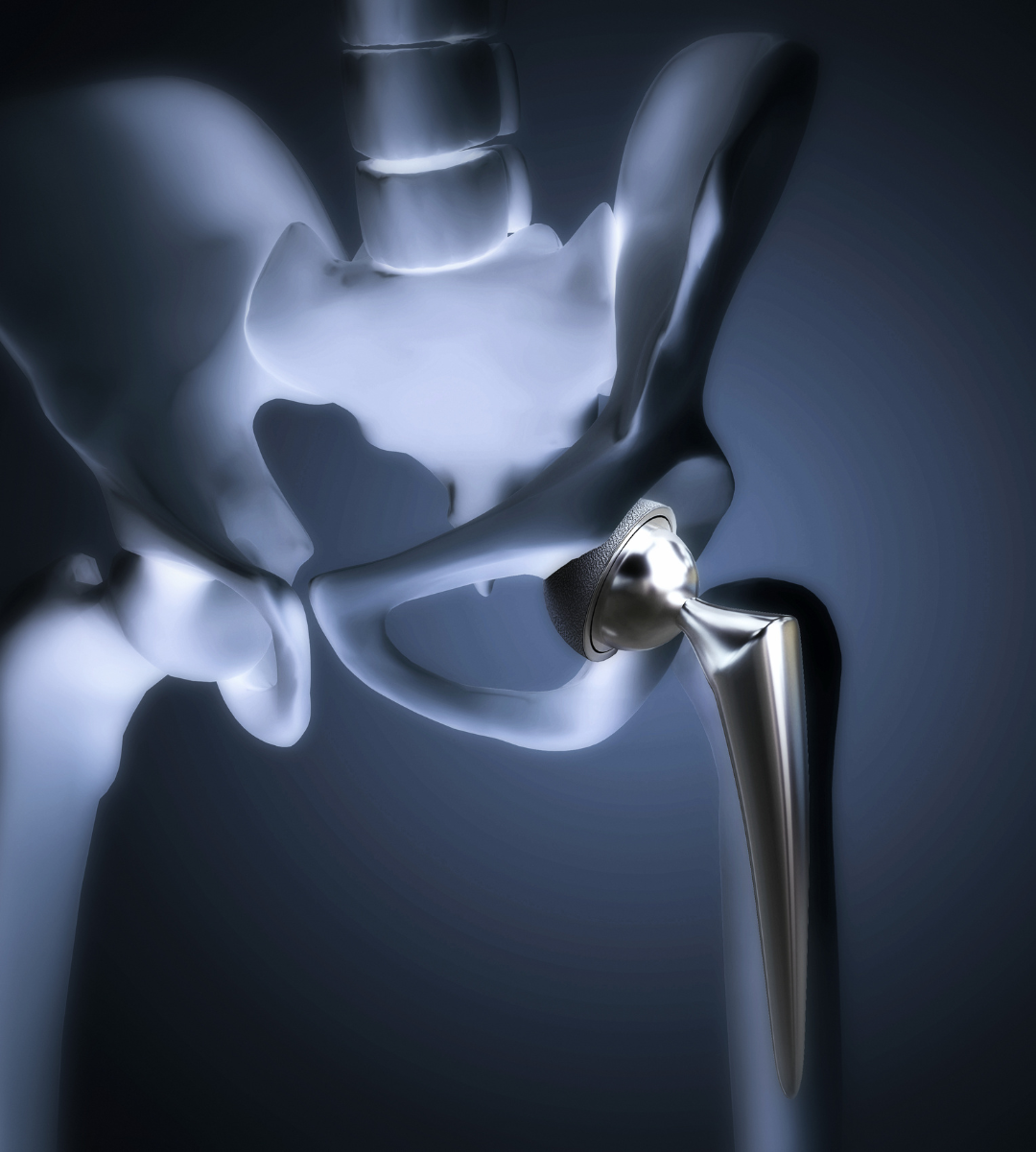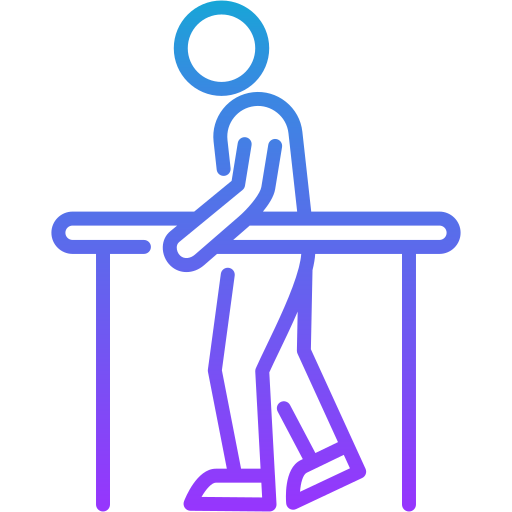Dr.Apoorv Dua
Total Hip Replacement Surgery: Restoring Mobility and Relieving Pain
Total hip replacement surgery is a proven procedure designed to alleviate chronic pain and restore mobility for patients suffering from severe hip joint damage or arthritis.
- Alleviates chronic hip pain caused by arthritis or injury.
- Restores hip function, allowing for better movement and daily activity.
- Smaller incisions mean less tissue damage and quicker recovery.
- Long-lasting artificial joints for enhanced function and longevity.
Consult a Doctor

Hip Replacement
Total hip replacement surgery is a highly effective procedure used to alleviate pain and improve mobility for patients suffering from hip joint damage or arthritis. Traditionally, the surgery involved making a large incision, dissecting muscle, and removing damaged bone, leading to longer hospital stays, extended recovery periods, and more significant post-operative discomfort. However, advancements in medical technology have paved the way for minimally invasive hip replacement surgery, which has become a preferred option due to its numerous benefits.
Minimally Invasive Hip Replacement Surgery uses smaller incisions and causes less disruption to the surrounding muscle and tissue. As a result, patients experience reduced pain, faster recovery times, and a shorter hospital stay, making it an excellent alternative to traditional hip replacement surgery.
Know More
About Hip Replacement
-
 Symptoms
Symptoms
-
 Diagnosis
Diagnosis
-
 How We Perform
How We Perform
-
 Why Is Treatment Needed?
Why Is Treatment Needed?
-
 Recovery
Recovery
-
 Rehabilitation
Rehabilitation
-
 Prevention
Prevention
Hip joint problems usually present with symptoms like persistent pain, stiffness, or discomfort in the hip, groin, or thigh area. Patients may also experience difficulty walking, reduced range of motion, and pain during weight-bearing activities like climbing stairs or sitting down.
Key Points:
- Persistent hip pain, especially during movement or after physical activity.
- Stiffness in the hip, groin, or thigh, limiting range of motion.
- Difficulty walking or climbing stairs without discomfort.
- Pain that radiates to the knee or lower back.
- Pain or discomfort that persists even when resting or sitting.
Diagnosis involves a thorough physical examination by your doctor, combined with imaging techniques like X-rays and MRI scans to assess the extent of joint damage. This allows the doctor to determine whether hip replacement surgery is necessary or if alternative treatments might be more suitable.
Key Points:
- A physical examination to assess range of motion and joint function.
- X-rays to evaluate bone structure and detect joint damage.
- MRI scans to assess cartilage and soft tissue damage.
- Blood tests may be performed to rule out infections or other conditions.
- A thorough medical history to understand symptoms and activity levels.
In minimally invasive hip replacement surgery, small incisions are made to access the hip joint. Damaged cartilage and bone are removed, and an artificial joint made of metal, plastic, or ceramic is implanted. The procedure minimizes tissue disruption, which helps in quicker recovery and reduced post-operative pain.
Key Points:
- Minimally invasive approach with small incisions to access the hip joint.
- Removal of damaged bone and cartilage from the hip joint.
- Placement of a prosthetic joint made of metal, ceramic, or plastic.
- Reduced tissue damage for less post-operative pain and quicker recovery.
- Surgery typically lasts 1-2 hours, with most patients discharged in 2-4 days.
Hip replacement surgery is crucial when joint damage becomes severe, causing chronic pain and impairing mobility. Left untreated, hip joint damage can lead to further complications, affecting the patient’s overall quality of life. The surgery helps restore function, relieve pain, and enhance the ability to perform everyday tasks.
Key Points:
- Severe pain that interferes with daily activities and quality of life.
- Loss of mobility, making it difficult to walk, sit, or stand comfortably.
- Risk of joint damage worsening over time if left untreated.
- Alleviates chronic pain caused by arthritis or injury.
- Surgery restores joint function, allowing for a return to normal activities.
Recovery after hip replacement typically involves a hospital stay of 2-4 days. Patients are encouraged to walk with assistance shortly after the procedure. Full recovery can take 6-12 weeks, depending on the individual, but most people return to their regular activities within this time.
Key Points:
- Initial hospital stay of 2-4 days, depending on individual recovery.
- Patients typically begin walking with assistance within 24-48 hours.
- Full recovery takes 6-12 weeks with proper rehabilitation.
- Pain management includes medication and physiotherapy.
- Gradual return to daily activities as strength and mobility improve.
Rehabilitation is a critical part of the recovery process. A personalized physical therapy plan helps to restore strength and range of motion in the hip joint. Exercises focus on improving mobility, stability, and balance. Adherence to the rehabilitation program is essential for optimal recovery outcomes.
Key Points:
- Personalized physical therapy plan to strengthen the hip joint.
- Focus on exercises that improve mobility, stability, and balance.
- Regular follow-up appointments to monitor progress.
- Home exercises to continue strengthening after therapy sessions.
- Commitment to rehabilitation significantly enhances recovery outcomes.
Preventing future hip issues involves maintaining a healthy weight, staying active, and engaging in low-impact exercises to strengthen the muscles surrounding the hip joint. Proper posture and avoiding activities that put excessive strain on the hips are also essential in reducing the risk of further joint problems.
Key Points:
- Maintain a healthy weight to reduce pressure on hip joints.
- Engage in low-impact exercises like swimming or cycling to strengthen hip muscles.
- Avoid high-impact activities that put excessive strain on the hips.
- Practice proper posture to prevent joint deterioration over time.
- Regular check-ups and early intervention can prevent further hip issues.
WHY US?
Why Choose Dr. Apoorv Dua
At our clinic, Dr. Apoov Dua provides expert care in Total Hip Replacement Surgery. With years of experience in orthopedic surgery, Dr. Dua specializes in minimally invasive techniques, ensuring faster recovery and improved long-term outcomes for his patients.

50,000+
Patients Experience

25,000+
Procedures

1000+
Trauma surgeries

5000
Joint Replacement Surgeries
Check Surgery Cost
We believe in transparency. You can enquire about the Surgery Cost and we will help you with complete detailed treatment process till your recovery.
Frequently Asked Questions About Hip Replacement
Total hip replacement surgery involves replacing the damaged hip joint with a prosthetic joint made of metal, ceramic, or plastic, improving mobility and relieving pain caused by arthritis or injury.
Candidates include individuals with severe hip pain, joint stiffness, and limited mobility due to arthritis, injury, or degeneration, especially when non-surgical treatments have not provided relief.
The surgery typically lasts 1-2 hours, depending on the complexity of the case and whether it’s a partial or total hip replacement.
Full recovery takes around 6-12 weeks, though most patients can walk with assistance within a few days and resume normal activities within 3 months, depending on rehabilitation.
Post-surgery pain is managed with medication, and minimally invasive techniques help reduce overall discomfort compared to traditional surgery. Pain generally decreases as the patient recovers.
Yes, physical therapy is essential for regaining strength, flexibility, and proper function of the hip joint, ensuring a smooth and successful recovery.
Modern hip implants can last 15-20 years or longer, depending on factors like activity level, overall health, and the type of prosthesis used.
As with any surgery, there are risks such as infection, blood clots, dislocation, and implant wear. However, these risks are minimized with advanced techniques and proper post-op care.
After rehabilitation, most patients can resume activities like walking, swimming, and cycling. High-impact activities like running or jumping should be avoided to prolong the life of the prosthetic joint.
Most patients can begin walking with assistance within 1-2 days after surgery, using aids like crutches or walkers as needed.
What Our Patients Say





Based on 160 reviews








